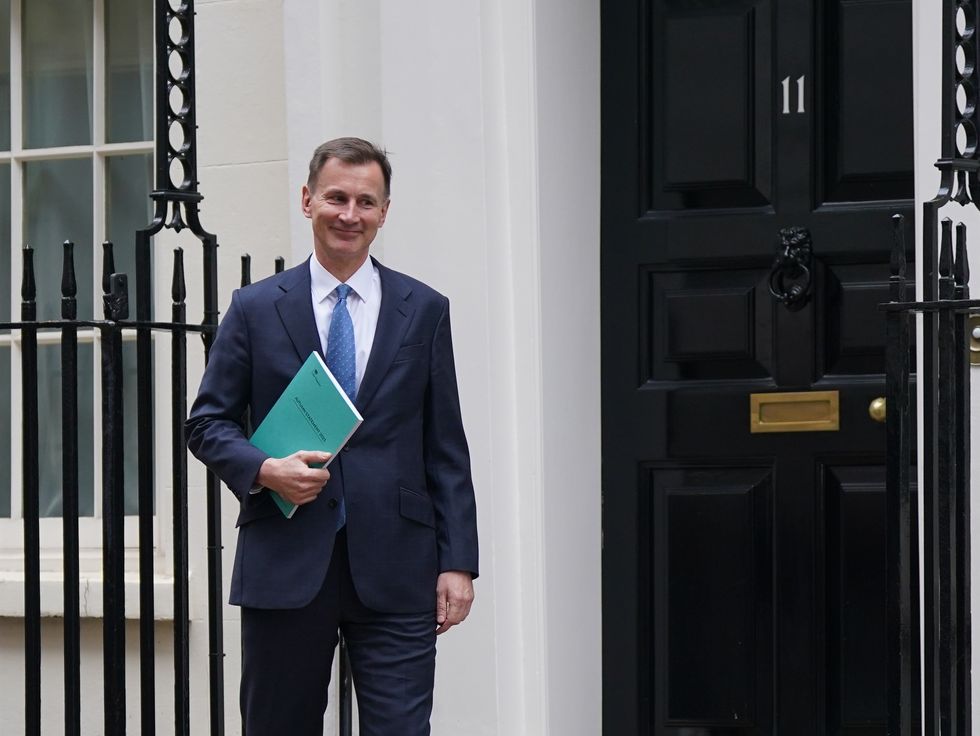A rate cut to National Insurance will be introduced tomorrow but there’s fears about the impact cuts could have on the state pension down the line
Don't Miss
Most Read
Trending on GB News
Concerns about the future of the state pension is mounting amid National Insurance rate cuts coming into effect tomorrow.
Experts are warning that the upcoming reduction to the National Insurance (NI) rate “raises concern” over how the state pension will be paid for.
The state pension is paid for by the working population’s National Insurance contributions.
The payment is currently uprated via the triple lock, which is a commitment to increase the payment by the highest out of inflation, average earnings or 2.5 per cent.

The future of the state pension is in question
GETTY
Pensioners will see a 8.5 per cent increase to their monthly payments from April, in line with average earnings.
However, with the state pension being paid for by the public purse, experts are raising questions over the long-term viability of the payment in its current form.
This has been compounded by the Government’s pending cut to National Insurance and the promise of more tax cuts to come.
The National Insurance rate for class 1 contributions will be slashed from 12 per cent to 10 per cent as of tomorrow.
Steve Cameron, pensions director at Aegon, said the cut “does raise concern” for the future of the state pension triple lock.
He explained: “Today’s state pensions are paid for from the National Insurance of today’s workers. The cut will mean less National Insurance receipts even though the state pension is increasing by 8.5 per cent in April, more than double the current rate of inflation.
“Our ageing population, combined with the current triple lock mechanism, means the costs of state pensions are rising sharply.
“Reducing National Insurance contributions, their primary source of funding, adds to the challenge, potentially requiring alternative state pension funding sources from general taxation in future.”
LATEST DEVELOPMENTS:

Jeremy Hunt outlined his plans for National Insurance in his Autumn Statement
PAWhen the 8.5 per cent rate hike to the state pension is implemented later this year, the full basic state pension will jump from £156.20, up from £169.50.
This is the payment for men born before April 6, 1951 and women born prior to April 6, 1953 with those born after these dates getting the new state pension.
Receipts of this benefit will be awarded an increase of £17.35 weekly, which will push the state pension from £203.85 to £221.20.
Payment rate increases to the state pension and other benefits will be applied from April 2024.









